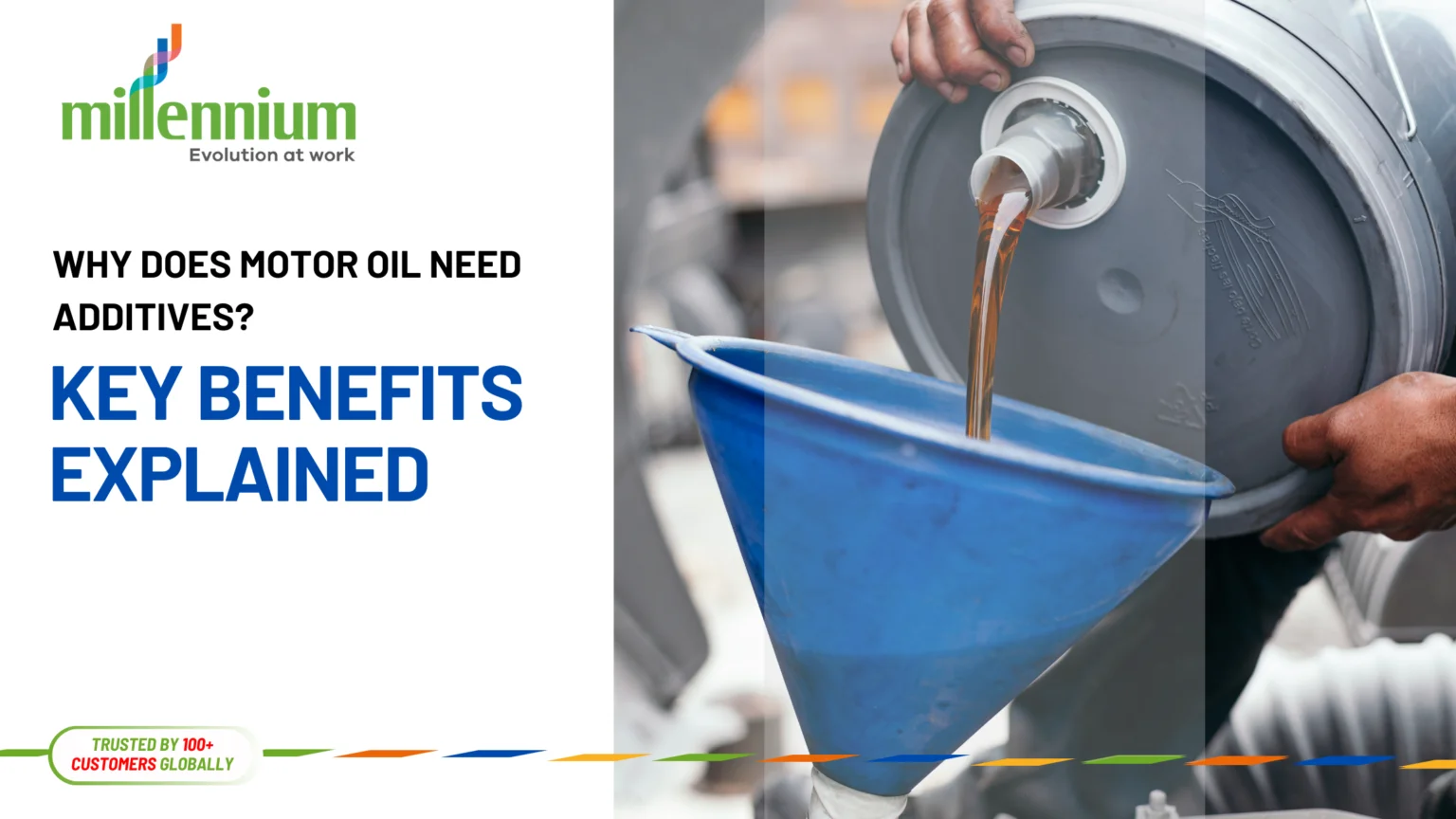Motor oil is the lifeblood of any internal combustion engine, providing essential lubrication to minimize friction between moving parts. However, base oil alone cannot meet the demanding requirements of today’s high-performance engines. This is where motor oil additives come in. These chemical compounds are mixed into base oil to improve and extend the oil’s performance. From enhancing viscosity to cleaning engine parts and preventing corrosion, additives play a crucial role in protecting engines and improving efficiency. This article explores the importance of motor oil additives, the types commonly used, their performance benefits, and what can go wrong if they are absent.
Introduction to Motor Oil Additives
Motor oil additives are chemical substances blended with base oil to impart specific properties or enhance existing ones. While base oils (mineral, synthetic, or semi-synthetic) provide the fundamental lubricating ability, additives modify the oil’s behavior under various operating conditions. These compounds address the limitations of base oil by offering protection against wear, oxidation, and deposit formation. Additives are essential not only for performance and engine longevity but also to meet modern environmental and fuel economy standards. Without them, motor oil would degrade rapidly, leaving engines vulnerable to damage and inefficiency.
Types of Additives in Motor Oil
Several different types of additives are used in motor oils, each serving a specific function. Below are the most common categories:
-
Detergents
Detergents keep engine parts clean by preventing the formation of deposits, sludge, and varnish, especially under high-temperature conditions. They neutralize acids that form from fuel combustion and oxidation. -
Dispersants
These additives keep contaminants like soot, dirt, and other particles suspended in the oil, preventing them from clumping together and forming harmful deposits. This helps maintain engine cleanliness. -
Anti-Wear Agents
Compounds such as Zinc Dialkyldithiophosphate (ZDDP) form a protective film on metal surfaces to reduce wear and tear between moving components, particularly in high-pressure areas like valve trains and cams. -
Friction Modifiers
These additives reduce internal engine friction, thereby improving fuel economy. They are especially useful in modern low-viscosity oils designed for better efficiency. -
Viscosity Index Improvers
These polymers help maintain the oil’s viscosity across a wide range of temperatures. They prevent the oil from thinning out too much at high temperatures and thickening too much in cold conditions. -
Antioxidants
Oxidation leads to oil thickening, sludge, and acid formation. Antioxidants delay this process, extending the life of the oil and protecting engine components. -
Corrosion and Rust Inhibitors
These additives form a protective layer on metal surfaces, preventing rust and corrosion caused by moisture and acidic byproducts of combustion. -
Foam Inhibitors
Excessive foaming can reduce lubrication efficiency. Foam inhibitors reduce the surface tension of oil to break down bubbles and maintain a consistent oil film.
How Additives Enhance Motor Oil Performance
Additives transform base oil into a high-performance lubricant that can withstand extreme pressure, heat, and contamination. Here’s how they enhance engine protection and efficiency:
-
Extended Engine Life: Anti-wear agents and antioxidants reduce physical and chemical degradation, helping engines run longer without damage.
-
Improved Fuel Efficiency: Friction modifiers and viscosity index improvers reduce drag inside the engine, enhancing fuel economy.
-
Cleaner Engines: Detergents and dispersants minimize deposit formation, keeping oil passages and components clean for optimal performance.
-
Cold and Hot Weather Protection: Viscosity modifiers ensure that oil flows well during cold starts and remains stable during high-temperature operations.
-
Environmental Compliance: Modern engines require low-emission, high-efficiency lubricants, and additives help meet these stringent standards.
In essence, additives serve both preventative and performance-enhancing functions, ensuring that the oil not only lubricates but also actively protects and maintains the engine.
What Happens If Motor Oil Lacks Additives?
Running an engine with motor oil lacking adequate additives can lead to a range of problems, from minor performance issues to catastrophic failure. Here’s what could happen:
-
Increased Wear and Tear: Without anti-wear agents, metal components grind directly against each other, accelerating engine wear.
-
Sludge and Deposits: Without detergents and dispersants, contaminants settle in the engine, forming sludge that clogs oil passages and reduces lubrication efficiency.
-
Oxidation and Thickening: In the absence of antioxidants, oil breaks down quickly under heat, becoming thick and forming varnish on engine parts.
-
Corrosion Damage: Combustion byproducts and moisture can corrode engine components if corrosion inhibitors are missing.
-
Poor Cold Starts and Overheating: Without proper viscosity control, the oil may become too thick in cold weather or too thin when hot, leading to inefficient lubrication.
Ultimately, oil without additives cannot cope with the stresses of engine operation, leading to frequent breakdowns, reduced performance, and expensive repairs.
Conclusion
Motor oil additives are essential to maintaining engine health, efficiency, and longevity. Each type of additive serves a specific function, from cleaning and protecting to improving fuel efficiency and extending oil life. Without these additives, base oil would quickly fail under the demanding conditions of modern engines. For drivers, technicians, and engineers alike, understanding the role of additives helps in choosing the right motor oil and ensuring optimal engine performance. As engine technologies evolve, so too will additive formulations, continuing to play a critical role in automotive lubrication and performance.










Leave a comment